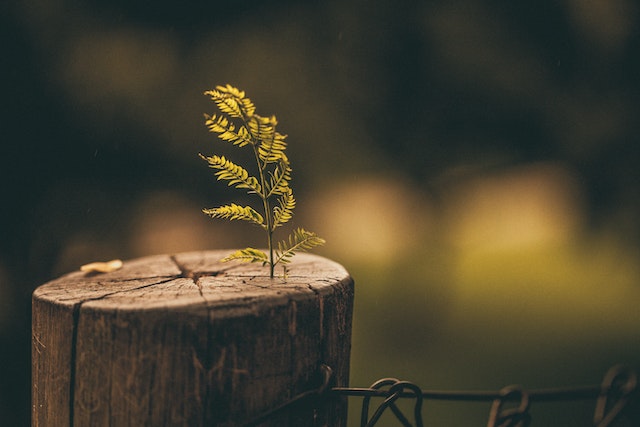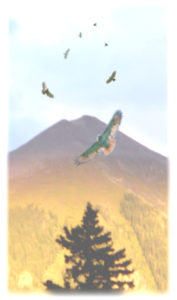The best way to pray is: stop. Let prayer pray within you, whether you know it or not. This means a deep awareness of our true inner identity. It implies a life of faith, but also of doubt. You can’t have faith without doubt. Give up the business of suppressing doubt. Doubt and faith are two sides of the same thing. Faith will grow out of doubt, the real doubt.
Thomas Merton¹
What? It’s OK to doubt?
I certainly hope so. Take a look at how people behave toward each other when they don’t allow doubt: bigotry and persecution, abusive relationships, suppression and domination.
Doubt is not what paralyzes us and prevents us from taking the risks that are necessary for a life well lived. Doubt in healthy measure allows us to evaluate and improve. The times when we get frozen in place, or more jumpy than is good for us or anybody else, are about having a lousy relationship with fear. Every tale of the hero or heroine is not a story about being fearless; the substance of each story is about what the hero does with the fear. When we’re bruised and tired, and we truly feel that we have nothing left to give, we go through whatever we need to go through and then keep moving.
Doubt is essential to discover what is authentic to us. If there is no room for doubt, there is no room for us to discover what is real for our particular heart. This discovery never stops. When we are open and willing to learn and to grow, doubt and curiosity go hand in hand.
I was once talking with a friend who is a true master in the martial arts. At the time, she was a sixth degree black belt in Kung Fu San Soo. She made this very honest comment: “People have this romantic viewpoint of what being a sixth degree black belt means. Frankly, every week I have doubt whether I want to or will continue.” Two years later she earned her eighth degree black belt and the designation of Master.
Then there is the Dark Night of the Soul. The phrase comes from a poem and treatise of the same name written by the sixteenth century Spanish mystic, John of the Cross. The words may seem threatening, but they actually describe a fundamental process of spiritual and psychological growth.
The dark night of the soul propels us into a radical level of doubt that can lead to a radical level of humility and surrender. This level of surrender is not something we would deliberately choose. It’s too hard. Nevertheless, that level of deep unknowing can yield amazing treasures, opening us to tenderness and compassion, acceptance of all life, even moments of joy.
This dark night of the soul refers to those experiences that make us shed the beliefs and identities that we hold onto that are familiar and safe. These beliefs may be positive as well as negative. Either way, as useful and inevitable as these beliefs and identities are, they are conditional, and the soul has no conditions. The word “dark” does not refer to something bad or evil. It just refers to, in little ways and in big ways, having to surrender the accustomed reference points that we use to light our way. So the passage of the “dark night” often feels unfamiliar and threatening. But if we’re somehow able and willing to endure the passage, at the other end of the dark night we may find the soul, the core, of who we are.
In plain language, sometimes we learn how to love most deeply by having to let go of control, having to, at least for a moment, surrender those things that we hold onto for strength and security. Hopefully, if we hang in there when we don’t even know what to hang onto, we might stumble upon a moment of union with spirit and soul; we might touch the strength and safety that comes from immersion in the mysterious waters of a deeper well—unconditional love.
To be honest, surrender is pretty difficult for humans. In my experience, the simple willingness to explore the territory of humility and surrender is far more useful than demanding those qualities in ourselves and others at the time and place of our convenience. It just doesn’t work that way.
I’m actually a bit glad when I have to go through an uncomfortable period of feeling lost. It’s an opportunity to get off my own high horse, to let my soul tinker with me while I get out of the way. When I am for a while deprived of the strength and power of the beliefs that I am accustomed to, I have a chance to cultivate a different type of courage.
In farming, when a field is left “fallow,” the soil has been ploughed and harrowed but left unseeded for a season or more in order to increase its fertility. The word “harrow” here makes me laugh, because when I am reduced back to simple dirt, the experience is indeed harrowing. To push the analogy, it is as if all the work I’ve done on myself adds some useful bits and pieces, but at some point, what I’ve learned also creates its own clots, lumps, stones and stumps. So my soul is wise enough to break me up and make me lie still and in darkness, withholding the seed I’m so eager to have planted until that seed can be nurtured by renewed soil.
It’s a season of waiting until a more profound fertility is restored through a natural time of stillness and inactivity. This fallow period is required for creative work and spiritual growth. It is a time of slumber so that the deepest dreams can work their invisible magic.
Whether experiencing simple doubt or a dark night of the soul, be patient and take care of yourself. And laugh when you can! You don’t need to dig up the dirt as much as you think. The flower that shows up on the other end may be more beautiful than you could have ever imagined.
Woo
1. Brother David Steindl-Rast, O.S.B. Recollections of Thomas Merton’s Last Days in the West. Excerpted from Monastic Studies (Pine City, New York: Mount Savior Monastery, 1969). Reprinted at gratefulness.org.

